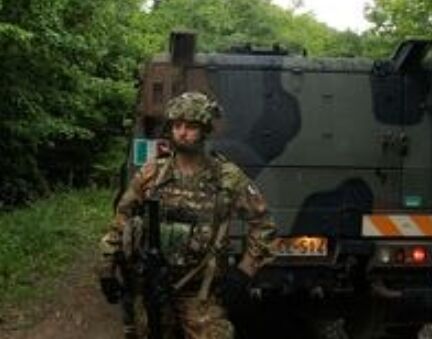De-escalation Needed in Kosovo-Serbia Conflict to Avoid Possible EU Sanctions
The resolution of the Kosovo-Serbia conflict relies heavily on de-escalation and the holding of fresh local elections in four Serb-majority municipalities. In the face of the EU’s warnings, it is essential that both countries commit to de-escalation in order to prevent political and financial measures that could further destabilize the region.Three Kosovo police officers were released from detention in Serbia after a court ruling on Monday, but both countries remain at odds as the European Union warned of possible sanctions if tensions between Serbia and Kosovo are not de-escalated. The officers were detained in mid-June near the disputed border between Serbia, which does not recognize Kosovo’s 2008 declaration of independence, and Kosovo.
Three Kosovo police officers were released from detention in Serbia after a court ruling on Monday, but both countries remain at odds as the European Union warned of possible sanctions if tensions between Serbia and Kosovo are not de-escalated. The officers were detained in mid-June near the disputed border between Serbia, which does not recognize Kosovo’s 2008 declaration of independence, and Kosovo.
Serbia said the officers had crossed into the country from Kosovo, while Kosovar authorities insisted they were kidnapped inside Kosovo and transferred to a Serbian prison. The United States and the European Union had joined Kosovo’s government in demanding their freedom. Serbia’s chief negotiator with Kosovo, Petar Petkovic, said the officers’ release from detention was a court decision “and not a political one” and that an investigation and their possible prosecution will continue.
Kosovo’s president, Vjosa Osmani, thanked the United States for securing the policemen’s release and officials said they wanted Serbia held responsible for the alleged incursion into Kosovo’s territory. Tensions between the two countries flared anew late last month after Kosovo police seized local municipal buildings in Serb-majority northern Kosovo to install ethnic Albanian mayors who were elected in an April election that Serbs overwhelmingly boycotted. Responding to this, the United States canceled Kosovo’s participation in a U.S.-led military exercise, and top Western officials halted high-level visits to Pristina.
In response, the European Union summoned the leaders of Kosovo and Serbia to Brussels to urge them to defuse the situation. EU foreign policy chief Josep Borrell hailed Monday’s release of the officers, but warned that the EU’s executive commission and member countries were ready to take political and financial measures against Serbia and Kosovo if they did not commit to a de-escalation. The U.S. and most EU members have recognized Kosovo’s independence, while Russia and China have backed Belgrade’s claim to the territory. Serbia lost control over Kosovo after NATO intervened in 1999 to stop the war, forcing Belgrade to end a brutal crackdown against separatist ethnic Albanians.
The resolution of the Kosovo-Serbia conflict relies heavily on de-escalation and the holding of fresh local elections in four Serb-majority municipalities. In the face of the EU’s warnings, it is essential that both countries commit to de-escalation in order to prevent political and financial measures that could further destabilize the region.




